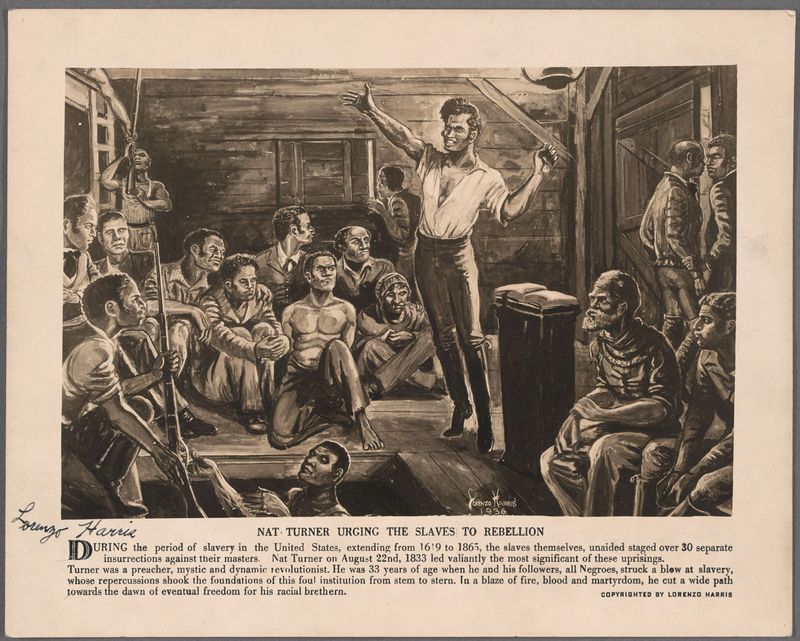“Who now shall go back thirty years and read the heart of this extraordinary man…?”
Atlantic Monthly (1861)
The historical figure of Nat Turner is shrouded in mystery. In August 1831, he led a group of some fifty enslaved men in Southampton County to attack four plantations, killing any man, woman, or child they encountered. After militia and vigilantes quelled the rebellion, these men were hanged or transported out of the state. Turner evaded capture for over two months only to be caught, tried, and hanged. During his confinement, Thomas R. Gray interviewed Turner, purportedly giving the leader of the rebellion a chance to explain his actions.

Beyond this heavily mediated report and other largely speculative reports, the historical record leaves little traces of Turner’s motives and methods. What we do know is that the rebellion left an indelible mark on the American imagination. Since 1831, that mark has taken many forms: artistic renderings, fictional accounts, debates in the popular and scholarly presses, theatrical productions, and most recently, a major Hollywood film: Nate Parker’s The Birth of a Nation.
Using print and manuscript collections at the American Antiquarian Society and the New York Public Library’s Schomburg Center for Research in Black Culture, this exhibition explores portrayals of Turner in both the nineteenth and twentieth centuries. Depictions often reveal less about who Turner was and more about the zeitgeist in which a given Turner was created. The bookends of this exhibition are the two “confessions”: one from 1831 and the other from 1967 when William Styron created the most controversial version of Turner to date. These works, as well as a sampling of Turner portrayals in the 136 years in between, are classified into six categories suggesting the range of characterizations of this controversial figure. Works might characterize Turner a number of ways that contradict one another as they imagine, in the words of Kenneth Greenberg, “the most famous, least-known person in American history.”